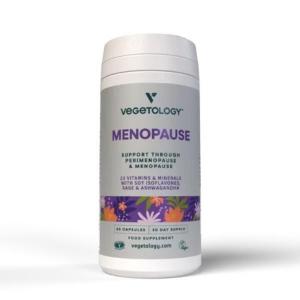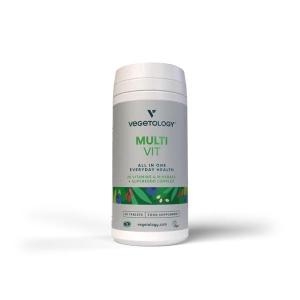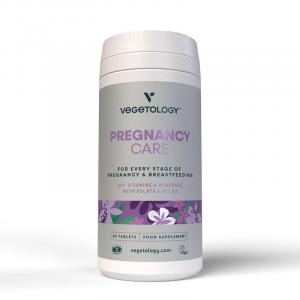
Find out why you are experiencing watery diarrhea after eating and what to do about it

What Does Watery Diarrhea After Eating Mean?
Not everyone can enjoy the pleasant feeling of fullness and satisfaction after a meal. For some people, the end of lunch or dinner is the beginning of uncomfortable digestive issues. Watery diarrhea after eating is not just an embarrassing complication—it can be a sign that the body is struggling with something or that there is a deeper health issue at play. While most people experience occasional diarrhea a few times in their lives, if these issues recur specifically after eating, it is important to pay attention to them.
Just as the body can clearly indicate when it enjoys something, it can also alert us when something is wrong. So what are the most common causes of this type of problem, what could be their consequences, and when is it necessary to seek professional help?
What Exactly Does Watery Diarrhea After Eating Mean?
It is not just about quick digestive issues after a large amount of food. Watery diarrhea after eating, medically known as postprandial diarrhea, refers to recurring and sudden loose stools that occur shortly after eating—sometimes within minutes, other times after an hour. This condition can appear once or repeatedly. In the latter case, it can significantly disrupt the quality of daily life—causing stress during travel, work, and social events.
The story of a twenty-year-old student named Eliška shows how uncomfortable and limiting these symptoms can be. "It started subtly—after a hearty lunch at the cafeteria, I had to leave for the bathroom several times. I thought it was a coincidence, but when it started happening at home and after every meal, I began to worry. I didn’t want to eat out, I avoided restaurants and trips," she describes her experience.
Eliška eventually found out that she suffers from irritable bowel syndrome (IBS), which is one of the possible causes of diarrhea after eating. But it is not the only one.
Possible Causes That Might Surprise You
The cause of watery diarrhea after eating can be many different factors—ranging from trivial to more serious. It is important to view these issues in a broader context and look for connections.
Food intolerance or allergy – One of the common triggers is intolerance to specific food components. Lactose intolerance, or the inability to digest milk sugar, can cause rapid diarrhea after consuming dairy products. Similarly, the body may react to gluten (in the case of celiac disease) or some types of fruits and vegetables that contain fermentable carbohydrates (known as FODMAPs).
Infectious causes – Bacteria such as Salmonella, Campylobacter, or E. coli often cause acute diarrhea, but in some cases, damage to the intestinal lining may persist even after the infection has subsided. The body may then be temporarily sensitive to certain foods and react with diarrhea.
Stress and anxiety – The psyche has a huge impact on digestion. It is no coincidence that people say "to have butterflies in your stomach" or "to have a tight feeling in your stomach." For some people, stress triggers an immediate reaction—accelerated emptying and diarrhea, especially after eating.
Irritable Bowel Syndrome (IBS-D) – This disorder of bowel function affects about 10–15% of the population, and one of its manifestations is repeated diarrhea after eating, often accompanied by abdominal pain, bloating, or a feeling of incomplete evacuation.
Gallbladder and pancreatic issues – If the body is unable to properly digest fats, which can be caused by gallbladder dysfunction or insufficient pancreatic function, the food decomposes incompletely in the intestines and may cause diarrhea.
Reaction to medications or supplements – Some medications, such as antibiotics or magnesium supplements, may disrupt the intestinal flora or stimulate peristalsis, thereby causing loose stools shortly after eating.
Lastly, it is worth mentioning food substitutes and sweeteners, especially sorbitol or xylitol, which are found in chewing gums, "light" foods, or some syrups. These substances are not fully absorbed in the small intestine and can act as natural laxatives in larger quantities.
Why It Is Important to Address This Problem Promptly
It often happens that people downplay health issues if they are not outright painful or life-threatening. Watery diarrhea after eating, however, is not just an "inconvenience" that can be endured. If this condition lasts longer than a few days or recurs repeatedly, it can lead to dehydration, mineral loss, fatigue, and malnutrition. Moreover, it can be a symptom of more serious illnesses, such as inflammatory bowel diseases (such as Crohn's disease) or malabsorption syndromes.
Try our natural products
One important step is to keep a record of what you eat, when issues occur, and what their manifestations are. This simple diary can significantly help a doctor in finding the correct diagnosis.
How to Adjust Diet and Lifestyle to Calm Digestion
Treatment depends on the specific cause, but there are general measures that can help most people with these symptoms. The foundation is a gentle and balanced diet that does not burden the digestive system. It is advisable to include easily digestible foods, limit fatty and fried dishes, exclude heavily spiced meals, and experiment with eliminating potentially problematic components—such as milk, gluten, or artificial sweeteners.
In some cases, a low-FODMAP diet may help, which was specifically developed for people suffering from irritable bowel syndrome. This diet limits fermentable carbohydrates that may cause bloating and diarrhea. However, it is important to follow it under the guidance of a nutritional therapist to prevent nutritional deficiencies.
An essential part is also a sufficient intake of fluids, ideally water or herbal teas—such as mint, fennel, or chamomile. These teas have a soothing effect on the digestive tract and may help alleviate cramps.
Mental well-being plays a larger role than it might seem at first glance. Regular exercise, meditation, deep breathing techniques, or yoga can contribute to reducing stress, which may trigger digestive issues.
If there is a suspicion of probiotic imbalance in the intestines—such as after taking antibiotics—natural probiotics may be a suitable solution. Fermented foods like sauerkraut, kimchi, or quality yogurt can support a healthy intestinal flora.
When choosing foods and supplements, it is good to monitor the composition and origin of ingredients. Products without chemical additives, dyes, and unnecessary preservatives may be more suitable for sensitive digestion. On online stores focused on natural and ecological products, like Ferwer, you can find a wide range of foods and supplements suitable even for people with food intolerances.
Finally, it is worth adding that even if symptoms are not painful, it does not mean they are unimportant. As gastroenterologist Prof. MUDr. Milan Lukáš, CSc., says: "The gut is the second brain—and if it doesn't function properly, it affects the whole body."
Paying attention to your body's signals, looking for causes, and not being afraid of professional help is the way to regain balance in digestion and everyday life.




